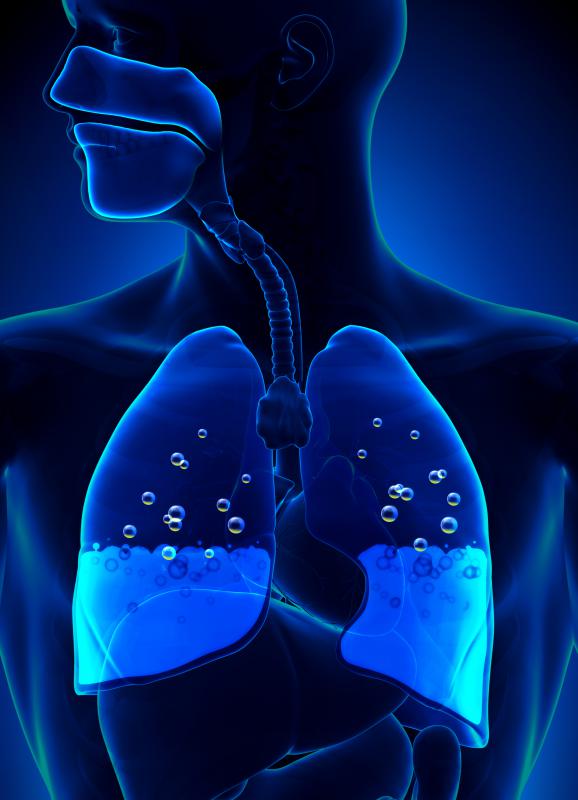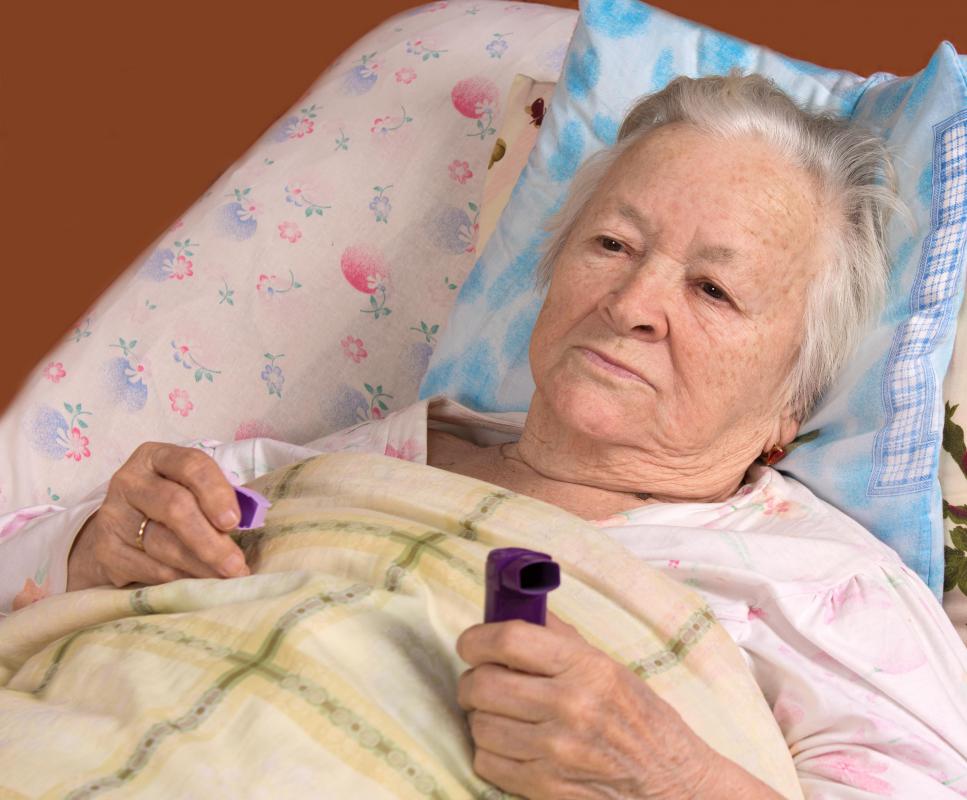At WiseGEEK, we're committed to delivering accurate, trustworthy information. Our expert-authored content is rigorously fact-checked and sourced from credible authorities. Discover how we uphold the highest standards in providing you with reliable knowledge.
What is Viral Pneumonia?
Viral pneumonia refers to a viral infection that causes fluid and swelling in the lungs. Generally, viral pneumonia makes it difficult to breathe because of the buildup of fluid. Also known as viral pneumonitis, viral pneumonia occurs mainly during the winter months. Symptoms can range from mild to extremely severe, and even life threatening. There are may viruses that are responsible for causing pneumonia. Viruses are a type of infectious agent, and the same viruses that cause pneumonia also may cause influenza.
Typically, viruses are spread by breathing in air around a person who is coughing, or by touching an inanimate object that has been infected with a virus on it. Generally, risk factors for pneumonia include being age 65 years or older, being a nursing home patient, and being under two years of age. In addition, patients whose immune system is compromised, and people with pre-existing lung disease are also at increased risk for contracting viral pneumonia.

Generally, symptoms of viral pneumonia vary from person to person, however, the most common symptoms are fever, headache, and dry cough. Frequently, muscle pain and weakness, accompanied by increasing breathlessness are noted as well. When coughing and shortness of breath become severe and unrelenting, the person may experience blue-colored lips. This is related to lack of oxygen and ineffective gaseous exchange in the lungs.

Regardless of the type of pneumonia that is present, whether viral or bacterial, the person commonly experiences a profound loss of appetite, fatigue, and sometimes abdominal pain and nausea. Another common manifestation of viral pneumonia is anxiety, which is related to incessant coughing and shortness of breath. When breathing becomes impaired and labored, an increase in fear is common, due to hyperventilation.

The diagnosis of pneumonia may include a complete physical examination and medical history. The physical examination may reveal wheezing and crackling sounds in the lungs, as well as diminished breath sounds. A chest x-ray may reveal white areas that may signal the accumulation of pus and fluid in the air sacs of the lung. Treatment for viral pneumonia includes rest, fluids, and analgesics. Cough preparations are often prescribed, and in severe cases, oxygen therapy may be ordered.

Because antibiotics are only effective for bacterial infections, they are ineffective for treating virus-related pneumonia. Sometimes, however, a secondary infection may occur, and in this case, antibiotics may be warranted. Most cases of viral pneumonia resolve on their own with proper rest, nutritional, and fluid intervention. Frequent hand washing is very important in the prevention of not only pneumonia, but in most infections.
AS FEATURED ON:
AS FEATURED ON:















Discussion Comments
I know that both bacterial and viral pneumonia can kill people, but I think that the bacterial kind takes more lives. It is usually stronger, and I seem to remember from history class that the many people who died of pneumonia before antibiotics were developed died because of bacteria in their lungs.
My dad had viral walking pneumonia and didn't even know it. This kind is less serious than regular pneumonia, and it takes awhile for the symptoms to show up.
He did have the flu for a week, so he just thought he was having a tough time recovering from it. When he was still sick three weeks after first coming down with the flu, he saw a doctor.
@wavy58 – Though there isn't a cure for viral pneumonia, there are a few things you can do to make yourself get better faster. Of course, you need to get plenty of rest, and you should also drink plenty of water to help flush out your phlegm.
This is one reason why doctors tell you not to take cough suppressants if you have viral pneumonia. This medicine can make it harder for you to cough the phlegm up, and your body needs to get rid of it.
There is no quick path to recovery, but if you treat yourself well, you will recover faster. I took two weeks off of work when I had pneumonia, and I made a complete recovery before going back to work.
It sounds like the treatment of viral pneumonia isn't something that would make you feel better quickly. I'm guessing there's no anti-viral medicine that will help.
So, you just have to cough your head off until you're better. This sounds about like viral bronchitis, which I've had before. I coughed for about a month before getting back to normal.
Post your comments